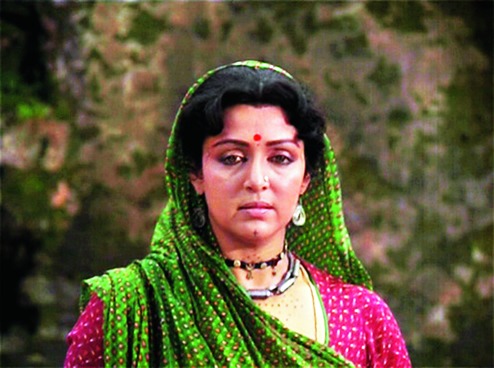
There was loss in the air but with the spontaneous Hema Malini around, there were chuckles and claps. Naseeruddin Shah, as impeccable with his English and Hindi as with his craft, would have been a tough act to follow when he went up to read a passage from Freedom: My Story, a new book by filmmaker Aruna Raje.
Anyone who rewinds to the brave cinema of the 70s and 80s would be acquainted with films like Shaque (Vinod Khanna, Shabana Azmi), Gehrayee (Padmini Kolhapure) and Rihaee (Hema, VK, Naseer). Each one went down an untried route, was applauded for the theme and the making, and made headlines for different reasons. Shaque spotlighted a rare chemistry between VK and Shabana. Gehrayee had a nude shot of child artiste Padmini Kolhapure, a gritty scene where she's sitting before a tantrik. These two films were made by Aruna-Vikas, a husband and wife team.
I first met them as a couple in grief - their school-going daughter, Gaagi, had died of leukemia.
But there was more heartache in store for Aruna as her marriage dissolved and she became a single parent to their little son, Hith. Vikas married his girlfriend, the daughter of old-time actress Jayshree.
By the time Rihaee was conceived, Aruna was an independent director. VK had told me with great pride about the film in which he played a man whose wife in the village is pregnant with another's child. When the village rises against her, the husband decides to accept her and the child. It was a bold subject for its time and both Hema and Vinod were complimented for their courage in choosing to do it.
The loss of the daughter and the divorce are in the book. The loss of Vinod was articulated by Aruna. She recalled that when she'd run out of money to make a print of Rihaee , Vinod had given it to her saying, "Payable when able."
With all the poignancy around, Hema stole the show. She has always been comfortable on stage. Decades ago when she was felicitated for completing 50 films, she had pulled up the organisers for not asking her to give a speech. "You think Hema Malini can't speak?" she'd asked. A lifetime of dancing, acting, being celebrity guest and an MP has made her even more at home before an audience.
Grammar be damned, she endeared herself to the "literary" crowd when she talked extempore of how she'd agreed to do Rihaee out of curiosity over how non-mainstream cinema was made. "Kuch hotel-wotel hai ?" she'd asked Aruna when she was told they'd shoot in a village. No, they had to stay in someone's house. So Hema made a picnic of it by taking her two daughters and their staff along. At the shoot, when everybody squatted on the ground, Hema asked, "Kursi-wursi milegi?" and got herself a chair. As she narrated this, she added, "Today, I'm saying, sorry Aruna, for asking for that chair."
She went on to talk of how she observed the woman-director directing Vinod and Naseer. When she turned director, Hema went to Aruna, "And she drawed for me where to place the camera, etc., and Aruna, I still have that paper with me." Applause.
Once the film was released, Dharmendra asked her about this film that people were whispering about. "I told him it's a very nice film," she said. Her eyes twinkled as she added with a little giggle, "But I didn't tell him to go watch it." That brought the house down.
This grandma (soon to be grandma to daughter Esha's child), who's a little more than a year away from 70, carries herself with erect dignity and runs her life as she pleases.
When the typical Punjabi Dharmendra wore a dhoti and went around the fire with her 37 years ago, I'm sure he didn't know he was signing up for a wife who has become the last word in independence. Apt that she launched a book titled Freedom .
Bharathi S. Pradhan is a senior journalist and author










